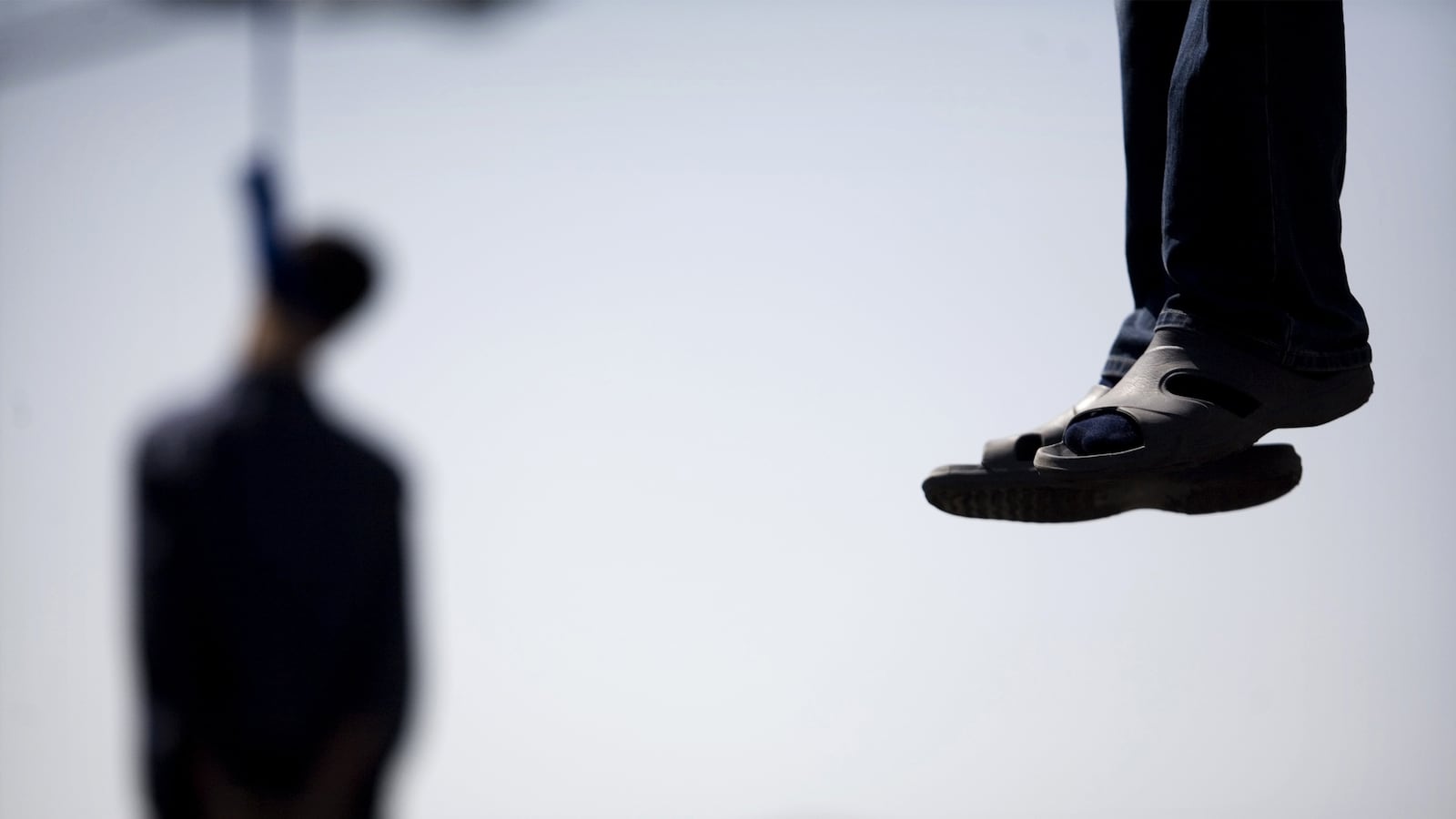LONDON — Phony terrorism strategies employed by some of America’s key counter-terror partners are at the heart of a shocking surge in death penalty usage, which has reached its highest level in a quarter of a century.
Amnesty International recorded 1,634 state-sanctioned executions in 2015—more than 50 percent higher than in the previous year.
The regimes in both Pakistan and Saudi Arabia—where the increase has been starkest—have used false claims about fighting terrorism to justify a dramatic increase in the execution of prisoners convicted of conventional crimes. The U.S. has given Pakistan more than $13 billion in military aid since the invasion of Afghanistan but seems to exert little influence over the nation’s counter-terrorism strategy.
“They [the U.S.] should speak out about a country like Pakistan using a counter-terrorism justification for the horrific scale of executions,” Audrey Gaughran, a director at Amnesty International, told The Daily Beast. “Very few of the executions in 2015 were for people who’d been convicted of terrorism-related offenses. The reality of who is being executed doesn’t match up with the rhetoric.”
There was a moratorium on executions in Pakistan until the terrorist attack on a school in Peshawar killed 132 children in 2014. The government reinstated the death penalty for terrorists in 2015, but within months it was being used in hundreds of unrelated cases.
By the end of the year, 326 people had been put to death—the highest number of executions Amnesty International has ever recorded for Pakistan, putting it third in the world behind Iran and China.
Joining them in the 2015 top five—with the U.S.—was Saudi Arabia, where there has been another huge surge in executions under the guise of a crackdown against terrorism.
Saudi Arabia executed 158 people last year almost twice the 2014 figure, and more than any other year since 1995.
“The on-going surge of executions is deeply uncomfortable for Saudi Arabia’s Western allies who collaborate so closely on intelligence and security issues,” said James Lynch, Amnesty’s deputy director for the Middle East. “The Saudi Arabian authorities suggest that these executions are carried out to fight terror and safeguard security but it’s clear that they are also using the death penalty in the name of counter terror to settle scores and crush dissidents.”
Saudi, Iran, and Pakistan accounted for more than 90 percent of the executions recorded in the world in 2015. Figures cannot be collected in China where use of the death penalty is a state secret, but the Chinese authorities are estimated to carry out thousands of executions each year.
The U.S. is the only country in the top five where executions were down last year. They fell by seven to 28—the lowest level since 1991—although Amnesty suggested difficulty in acquiring the chemicals for lethal injections and legal challenges to execution protocols were partially responsible for the decrease.
The slight reduction in the U.S. was overwhelmingly counter-balanced by those exponential increases in Pakistan and Saudi Arabia, and a rise in Iran.
“Fewer and fewer countries are using the death penalty, but the few that do are executing in unprecedented numbers, and there’s no justification for this,” said Gaughran. “We were very shocked, we are deeply worried that this could be continued into next year, we certainly see signs of that in Pakistan.”
The vast majority of those executed in Pakistan were not convicted of terrorist offenses, or had terror charges added to their cases with little or no justification. Many of those on death row had no resources to fund an adequate defense, and those executed included people with mental and physical impairments and juveniles. Under international law, executing minors is not permissible.
One of those put to death in Pakistan last year was Muhammad Afzal, who was 16 when he robbed and killed someone. In his final words before he was hanged, he said the police told his family to pay a 60,000 rupee bribe or they would add a bogus terrorism charge to his rap sheet. That is equivalent to only $600, but his family had no means to pay.
“We’re very concerned that this is happening,” said Gaughran. “The death penalty is being portrayed as a way that the government looks like it’s doing something about terrorism.”





